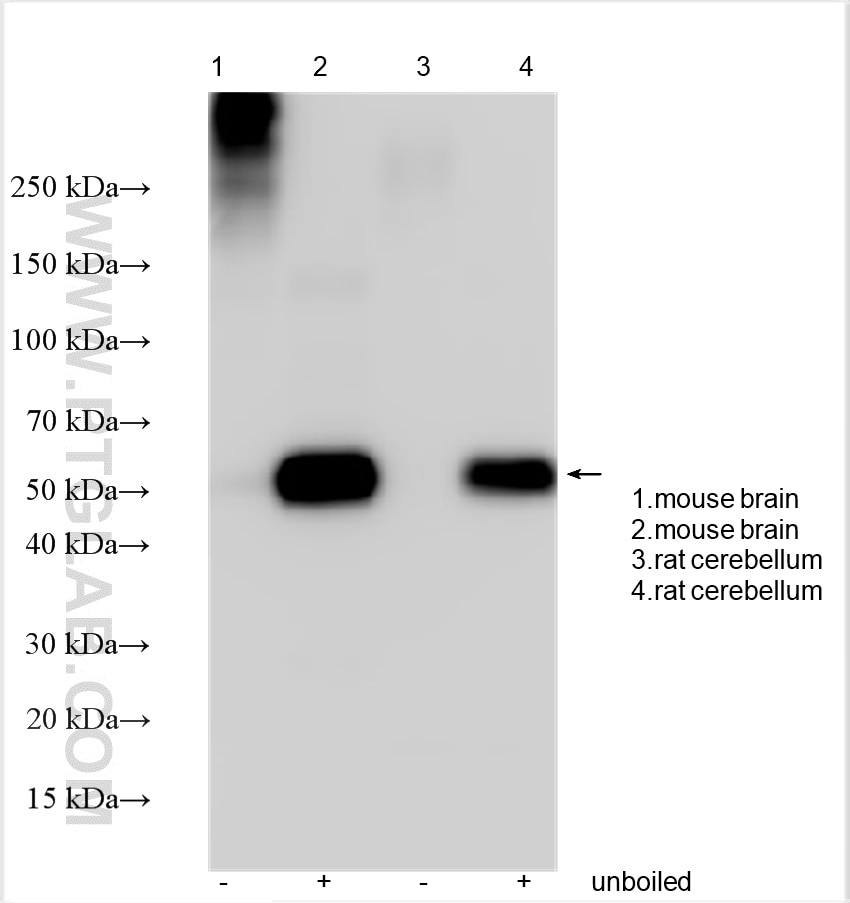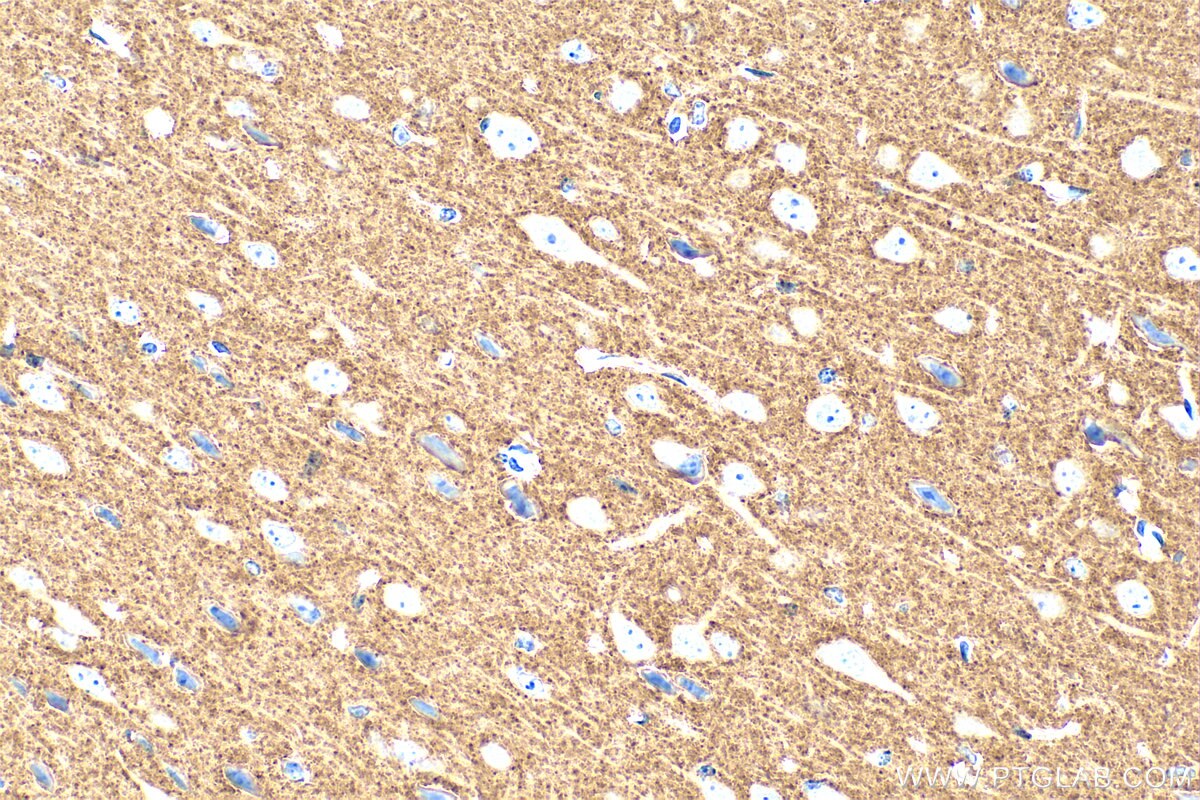Tested Applications
| Positive WB detected in | unboiled mouse brain tissue, unboiled rat cerebellum tissue |
| Positive IHC detected in | mouse brain tissue Note: suggested antigen retrieval with TE buffer pH 9.0; (*) Alternatively, antigen retrieval may be performed with citrate buffer pH 6.0 |
Recommended dilution
| Application | Dilution |
|---|---|
| Western Blot (WB) | WB : 1:2000-1:12000 |
| Immunohistochemistry (IHC) | IHC : 1:300-1:1200 |
| It is recommended that this reagent should be titrated in each testing system to obtain optimal results. | |
| Sample-dependent, Check data in validation data gallery. | |
Product Information
29469-1-AP targets VGLUT1 in WB, IHC, ELISA applications and shows reactivity with human, mouse, rat samples.
| Tested Reactivity | human, mouse, rat |
| Host / Isotype | Rabbit / IgG |
| Class | Polyclonal |
| Type | Antibody |
| Immunogen |
CatNo: Ag31193 Product name: Recombinant human VGLUT1 protein Source: e coli.-derived, PGEX-4T Tag: GST Domain: 500-560 aa of NM_020309 Sequence: PEEMSEEKCGFVGHDQLAGSDDSEMEDEAEPPGAPPAPPPSYGATHSTFQPPRPPPPVRDY Predict reactive species |
| Full Name | solute carrier family 17 (sodium-dependent inorganic phosphate cotransporter), member 7 |
| Calculated Molecular Weight | 62 kDa |
| Observed Molecular Weight | 55-60 kDa |
| GenBank Accession Number | NM_020309 |
| Gene Symbol | VGLUT1 |
| Gene ID (NCBI) | 57030 |
| Conjugate | Unconjugated |
| Form | Liquid |
| Purification Method | Antigen affinity purification |
| UNIPROT ID | Q9P2U7 |
| Storage Buffer | PBS with 0.02% sodium azide and 50% glycerol, pH 7.3. |
| Storage Conditions | Store at -20°C. Stable for one year after shipment. Aliquoting is unnecessary for -20oC storage. 20ul sizes contain 0.1% BSA. |
Background Information
Vesicular glutamate transporter 1 (VGLUT1) is a critical protein involved in the packaging and release of the neurotransmitter glutamate in synaptic vesicles. VGLUT1 is predominantly expressed in neurons that release glutamate, the primary excitatory neurotransmitter in the central nervous system, it is a marker of glutamatergic neurons. VGLUT1 has several isoforms with the moleculat weight range from 53-61 kDa.
VGLUT1 is a multiple transmembrane protein, which is easily to aggregate if the sample is bolied or treated with high temperature, thus we recommend to use unboiled sample for the detection.
Protocols
| Product Specific Protocols | |
|---|---|
| IHC protocol for VGLUT1 antibody 29469-1-AP | Download protocol |
| WB protocol for VGLUT1 antibody 29469-1-AP | Download protocol |
| Standard Protocols | |
|---|---|
| Click here to view our Standard Protocols |






